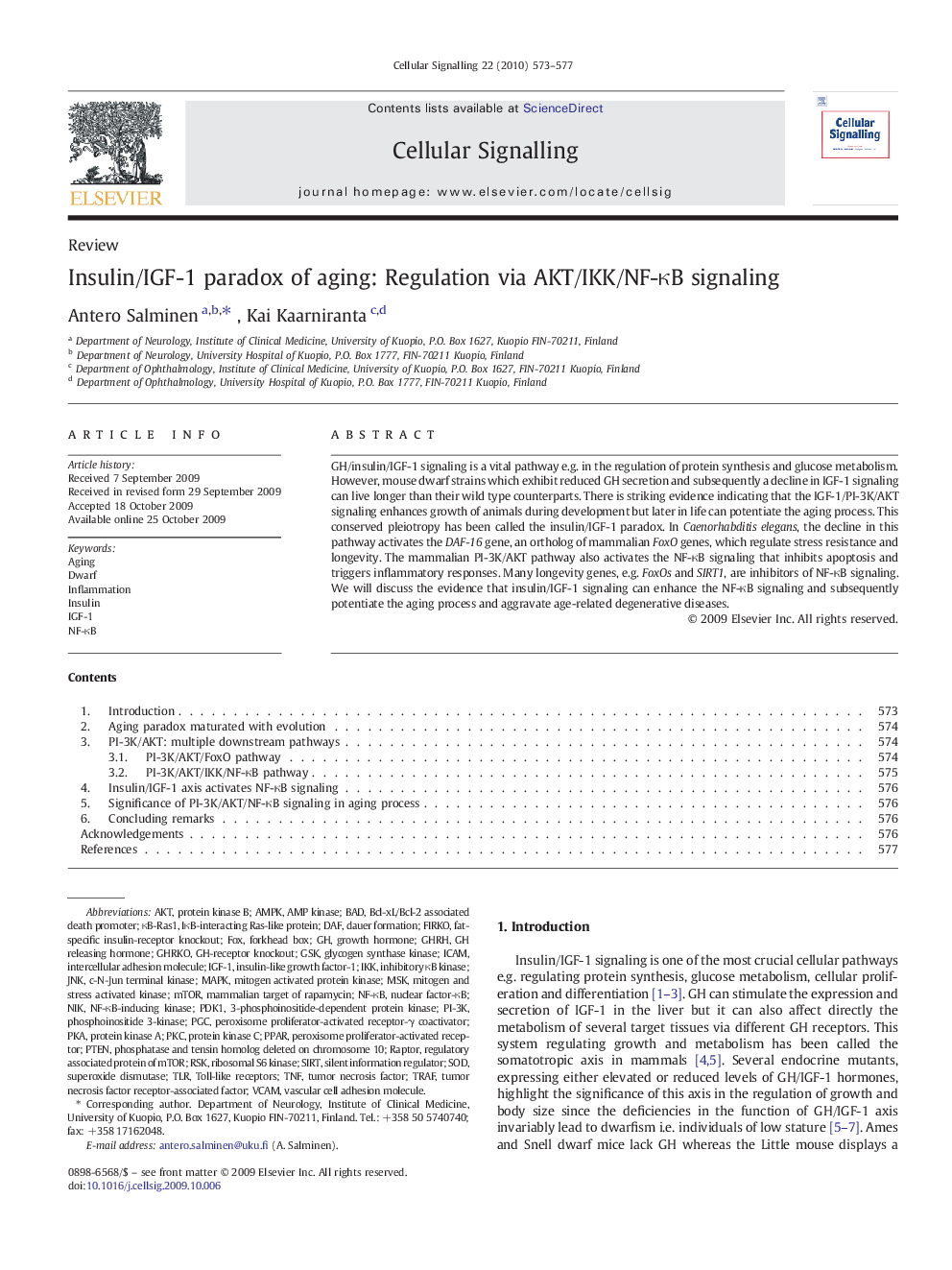| Article ID | Journal | Published Year | Pages | File Type |
|---|---|---|---|---|
| 1963753 | Cellular Signalling | 2010 | 5 Pages |
GH/insulin/IGF-1 signaling is a vital pathway e.g. in the regulation of protein synthesis and glucose metabolism. However, mouse dwarf strains which exhibit reduced GH secretion and subsequently a decline in IGF-1 signaling can live longer than their wild type counterparts. There is striking evidence indicating that the IGF-1/PI-3K/AKT signaling enhances growth of animals during development but later in life can potentiate the aging process. This conserved pleiotropy has been called the insulin/IGF-1 paradox. In Caenorhabditiselegans, the decline in this pathway activates the DAF-16 gene, an ortholog of mammalian FoxO genes, which regulate stress resistance and longevity. The mammalian PI-3K/AKT pathway also activates the NF-κB signaling that inhibits apoptosis and triggers inflammatory responses. Many longevity genes, e.g. FoxOs and SIRT1, are inhibitors of NF-κB signaling. We will discuss the evidence that insulin/IGF-1 signaling can enhance the NF-κB signaling and subsequently potentiate the aging process and aggravate age-related degenerative diseases.
